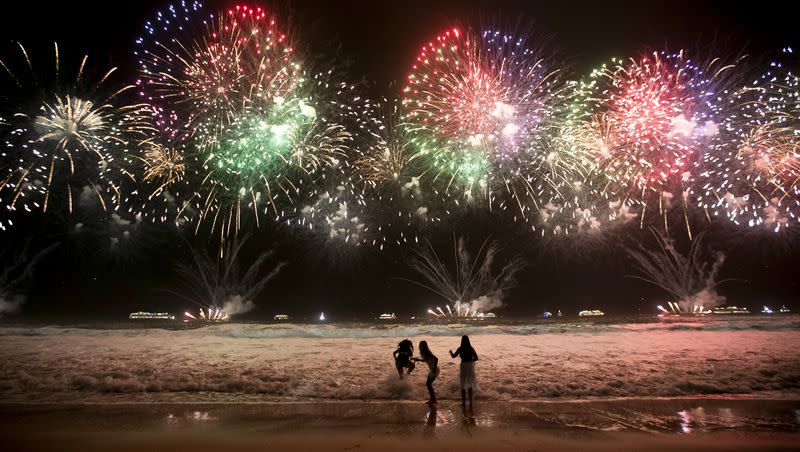Friendship, faith and a New Year’s resolution

This article was first published in the State of Faith newsletter. Sign up to receive the newsletter in your inbox each Monday night.
I closed out 2022 by writing about how to make new friends. It seems fitting, then, that I’m finishing out 2023 by writing about the friends people already have.
A new Pew Research Center analysis investigates the religious composition of Americans’ social groups and concludes that these groups are more religiously diverse than I assumed.
Overall, 61% of U.S. adults said they have at least some friends who belong to a different faith than their own. “That includes 43% who say only some of their friends have the same religion they do and another 18% who say hardly any or none of their friends do,” Pew reported.
Evangelical Protestants, Black Protestants and Hispanic Catholics are among the Americans who have the most religiously uniform friend groups. More than 40% of members of each of these groups said that “most” of their friends share their faith, Pew found.
Researchers also noted that Americans who “highly value” religion are less likely to build relationships with members of other faith groups than Americans who are less invested in their religious traditions.
“More than 4 in 10 U.S. adults who say religion is very or somewhat important in their lives (44%) say all or most of their friends have the same religion they do. Just a quarter of those who say religion is not too or not at all important in their lives report the same,” according to Pew.
Younger Americans and Americans with less formal education are on the other end of the spectrum. They’re more likely than others to have religiously diverse friend groups.
Although most Americans are comfortable befriending members of different faith groups, they don’t seem particularly comfortable actually talking about religion. Pew’s analysis highlighted a separate study showing that “only about 3 in 10 U.S. adults (31%) said in 2019 that they talk about religion with others outside their family once or twice a month or more often.”
All this research gave me an idea for a New Year’s resolution that you can feel free to steal: Make a new friend of a different faith and then commit to actually talking to them about what they believe.
Fresh off the press
What the Religious Freedom Restoration Act means to members of minority faiths
How long is it acceptable to say ‘Merry Christmas’?
Term of the week: Christmastide
Christmastide refers to the season of Christmas, although not the one you’re probably thinking of.
While it’s common to refer to the period from Thanksgiving to Christmas or even Nov. 1 to Christmas as the Christmas season, Christmastide, a liturgical term that’s used in many Christian churches, actually refers to the period between Christmas and the feast of the Epiphany. That same period is the subject of the popular song, “The 12 Days of Christmas.”
I wrote about Christmastide last week after I investigated whether it’s OK to keep saying “Merry Christmas” once Dec. 25 has passed. I learned that many Christians continue to say “Merry Christmas” throughout Christmastide.
What I’m reading ...
The Washington Post recently released a captivating investigation into the United States’ declining life expectancy, which explored why even the most powerful politicians struggle to combat this trend.
I haven’t got to them all yet, but I’ve been filling my spare time with stories from Bobby Ross Jr.’s annual list of the best religion journalism of 2023.
Ruth Serven Smith, whom I met several years ago at a Religion News Association conference, recently launched a podcast about an unsolved murder at Covenant Theological Seminary in Missouri and the faith community’s somewhat confusing and frustrating response to the tragedy. I’m two episodes in and have already learned a lot from “True Believer: The Unsolved Murder of Elizabeth Mackintosh.”
Odds and ends
Each December, news and social media sites overflow with year-end lists featuring memorable moments, top stories and the funniest memes. And each December, I gravitate toward the ones that attempt to round up the happiest or most joyful developments, like NPR’s list of “wonderful pop culture things.”

